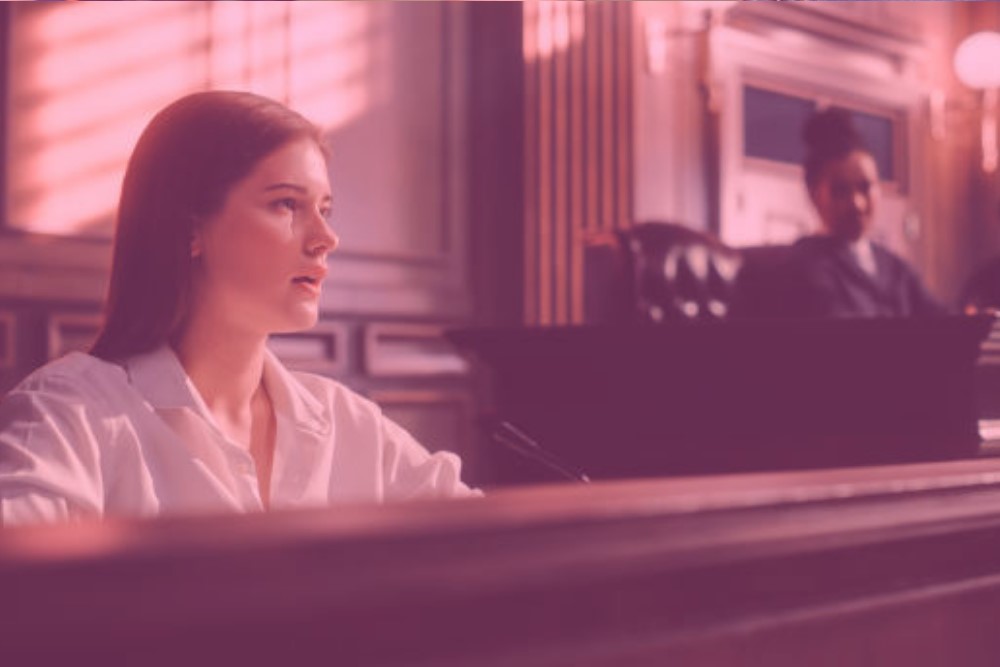A person may be required to give evidence in a criminal matter in a number of situations. This includes where the person is the alleged victim of the offence, where they were involved in the events in some way or where they simply heard or saw something that is relevant to the proceeding. A person may also be asked to give expert evidence if they are appropriately qualified and the court requires their expert opinion. This page deals with giving evidence in criminal matters in Australia.
Summons to attend court
If you have been summoned to give evidence, you must comply with the summons and attend court at the time and date that appears on the summons. If you do not attend, may be charged with contempt of court and/or a warrant may be issued for your arrest.
If a medical emergency or some other exceptional circumstance prevents you from attending court, you should contact the court as soon as possible to explain the situation.
Read over your statement
If you are a prosecution witness, you probably made a statement to the police that set out everything you could remember about what happened. If you are a defence witness, you may have made a statement to a defence lawyer.
If you made a statement, you should read back over the statement prior to court to refresh your memory of what happened. Try to remember as many specifics as you can such as dates, times, names, and words that were spoken.
You should not discuss your evidence with any other witnesses before court or during breaks in the proceeding.
Before you give your evidence, the prosecutor and defence lawyer may ask to speak with you. If there is anything in your statement that you think is incorrect or incomplete, you should let them know.
Oath or affirmation
When you are called to give evidence, you will be asked whether you want to take an oath or make an affirmation. An oath is a religious declaration that you will tell the truth. An affirmation is the non-religious equivalent.
If you are religious, you can choose to take an oath and swear on the Bible or on some other scripture that the evidence you give will be the truth.
If you are not religious, you can choose to make an affirmation instead.
A person who gives evidence is court is under the same obligations to tell the truth regardless of whether they take an oath or make an affirmation.
Child witnesses
In some cases, children may be called to give evidence in criminal matters.
When a child is to give evidence, they will usually be asked to make a promise to tell the truth rather than to take a formal oath or affirmation. The promise can be made in whatever way is appropriate to the age of level of maturity of the child.
Vulnerable witnesses
If a person is classed as a ‘vulnerable witness’, they may be able to get extra support when attending court to give evidence. Vulnerable witnesses include victims of sexual offences and witnesses with intellectual disabilities.
Vulnerable witnesses may be allowed to have a support person with them while giving evidence or to give evidence from another room or from behind a screen so that they do not have to look at the accused.
If you believe you need to be treated as a vulnerable witness, speak to the prosecutor (or the defence lawyer, if the defence has called you) and they can apply for you to be treated as a vulnerable witness.
The court will decide if you should be treated as a vulnerable witness and how your needs should be accommodated.
Giving evidence in court
When a witness gives evidence in a criminal matter, they will be asked questions by both the prosecution and the defence.
First, a witness will be asked questions by the party that called them. This is known as examination-in-chief. The party that called a witness will seek to elicit the witness’s story from them through a series of non-leading questions.
Second, the witness will be asked questions by the opposing party. This is known as cross-examination. The opposing party will challenge and test the witness’s evidence and seek to expose any weakness in their testimony. This may include highlighting any inconsistencies and gaps in their story, or challenging any claims that seem implausible.
When you are being subjected to examination-in-chief or cross-examination, you can take as much time as you need to answer the questions. If you do not understand a question or you cannot remember something, it is fine to say so. You must answer truthfully and as completely as you can. Try to speak clearly and remain calm and polite while giving evidence.
There are strict rules about what questions a witness can be asked during examination-in-chief and cross-examination. For example, unless a witness is an expert witness, they must not be asked to give their opinion except on a matter that is common knowledge. A witness must not be asked to give evidence that is inadmissible hearsay.
If either the defence or the prosecution lawyer asks you a question that risks breaking the rules of evidence, the other party is likely to object. When this occurs, your evidence may be interrupted while the lawyers make submissions to the court as to why a question should or should not be allowed.
Once you have finished giving evidence, you will be asked to leave the witness box. You may then leave court or watch the rest of the hearing from the public gallery.
If you need legal assistance in a criminal matter or in any other legal matter, please contact Taylor Rose.




